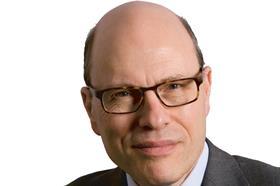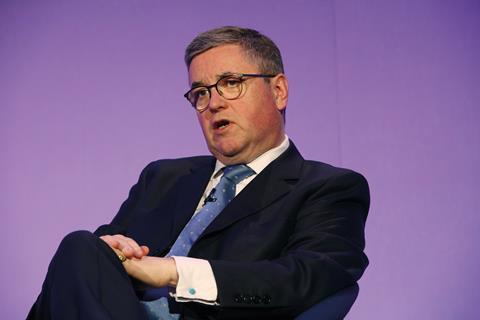Politics can be brutal. One morning last September, Robert Buckland was telling the House of Lords justice committee that he would be seeing the Law Society president later that day. By lunchtime, his meeting was cancelled – and so was Buckland. Despite talk of a reshuffle, he had no idea that the prime minister wanted to make Dominic Raab lord chancellor in his place.

With a KCB as his consolation prize, he became Sir Robert. But after more than seven years in government – five years as solicitor general followed by two years as lord chancellor – he needed time to decompress and decide what to do next.
Buckland remains MP for South Swindon and has no intention of giving up his seat. ‘It’s a privilege and an honour to be here,’ he tells me at his room in the Commons. ‘I live in my patch and I love working there and working with my community.’
But there is more to life than being a backbench MP. ‘I’m only 53 and I’ve got a lot to give,’ Buckland says.
His first decision is to resume practice at the bar – not necessarily picking up the heavy criminal cases he did as a junior but in a field that would allow him time for his parliamentary work. He hints at discussions with various London chambers.
His next project involves academic research. Following the lead of other former ministers, Buckland has been awarded an unpaid one-year senior research fellowship at the Mossavar-Rahmani Center for Business and Government, part of the Harvard Kennedy School in Cambridge, Massachusetts. Working mainly from the UK, he will be writing a paper on the use of artificial intelligence by the courts.
‘Millions of civil cases in China are now being decided by algorithms, as opposed to human judges,’ he says. ‘The Chinese think that this increases consistency and certainty; and of course the law loves certainty. But who writes the algorithm? And does it inadvertently change over time and build in the sort of prejudices that change the very nature of justice itself?’
'When Dominic Raab took over from me it was described as a demotion – an interesting use of words when he was taking one of the oldest offices of state… [lord chancellor] is not just an ancient office. It’s a very, very important one. It’s not second in order of precedence for nothing'
Buckland has also joined the council of human rights group Justice. He is a trustee of the Social Market Foundation, which he describes as a centrist thinktank. And, as the government announces plans to support adult offenders with neurodivergent conditions, he is to review the barriers that people with autism find in getting work. ‘The autistic mind is an extraordinary thing and has many attributes that neurotypical minds don’t see,’ he tells me. His daughter has autism and he regards it as a ‘shocking waste of talent’ that only one autistic person in five is in employment.

What, though, of his relationship with the government that he used to serve? He regards himself as a ‘critical friend’. But it’s not clear which of those two words sums up Buckland’s relationship with his successor.
We were speaking just a few hours before Raab published his Bill of Rights Bill. Buckland believes that negotiation with the Council of Europe, which supports the human rights court, is more effective than legislation. Given how benignly Strasbourg has treated the UK over the past decade, Buckland would not have proposed anything nearly as radical. ‘It’s a cure in search of a problem,’ he observes drily.
‘When Dominic Raab took over from me,’ he recalls, ‘it was described as a demotion – an interesting use of words when he was taking one of the oldest offices of state.’ Buckland was also ‘puzzled’ by Raab’s decision to use the title of deputy prime minister in preference to lord chancellor. ‘It’s not just an ancient office. It’s a very, very important one. It’s not second in order of precedence for nothing.’
Before his sacking, Buckland had been thinking of how it might be possible to restore the prestige that the lord chancellor’s office enjoyed before the Constitutional Reform Act 2005. In his view, the holder should be ‘a lawyer of standing’ in either the Commons or the Lords.
Under Buckland’s plan, the lord chancellor would not resume sitting as a judge or as speaker of the Lords. But the holder would take back some of the administrative duties that now burden the lord chief justice.
It sounded as if Buckland was drafting a job description for himself.
‘Well I’ve done it once,’ he reminds me. ‘Hailsham did it twice. It was a job I really loved doing and I think I understood it. And I understood it so much and cared for it so much that I wanted it to be stronger. And I think my frustration is that I haven’t been able to finish that task. I want it to be stronger because I think the stronger the lord chancellor is, the safer the judiciary are.’
Buckland may be out, but he’s certainly not down.
joshua@rozenberg.net































No comments yet